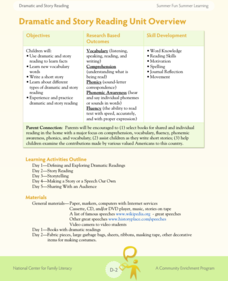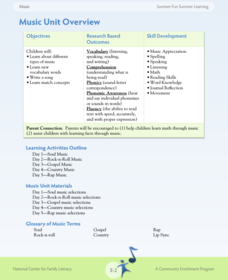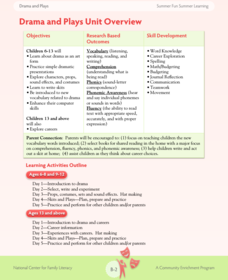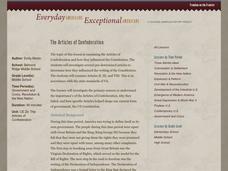Roy Rosenzweig Center for History and New Media
Patriots or Traitors - Point of View in the War for Independence
Patriots or traitors? Class members analyze images that present widely differing views of the Boston Tea Party, identifying the point of view of the image, the propaganda devices used, and the intended audience.
The New York Times
The One-Question Interview
Generate interest in current events, the theme of a new unit, or a research project. Individuals select a question from the list generated by the class, conduct one-on-one interviews, analyze the responses, draw conclusions based on...
The New York Times
Super Brand
Children can recognize popular brands from an early age, but these images symbolize much more than what they advertise. Take a journey through the design of a logo with a instructional activity that focuses on the history and ubiquity of...
J. Paul Getty Trust
Tag: Whose Values
Get young people thinking about their lives and current topics of social justice, advocacy, gender, race, and identity. After examining several works by Barbara Kruger, participants select a tag with one of the questions printed on it,...
Bethel School District
Health Triangle Self Assessment
Measure health as a triangle, with each side representing different aspects of health: physical, emotional/mental, and social. High schoolers complete a self-assessment of their health in all three areas before scoring their progress and...
Roy Rosenzweig Center for History and New Media
Labor Unions in an Industrializing U.S.
Have class members eager to enter the workforce? They'll be glad to learn that things aren't how they used to be. Have your young historians examine then discuss four primary source images related to the negative effects of...
Roy Rosenzweig Center for History and New Media
Immigration: Why Come to the United States?
Don't limit your curriculum to texts! Young historians listen to a song, read an interview, and examine a cartoon as they explore motivations for immigrating to the US in the late 19th and early 20th centuries.
Roy Rosenzweig Center for History and New Media
Early English Settlements History Detectives
Young historians play the role of history detectives as they investigate some primary source texts and images related to the early colonization of America, The Jamestown Settlement, and the Mayflower Compact.
Roy Rosenzweig Center for History and New Media
Rosa Parks and the Montgomery Bus Boycott
Participants examine two documents related to Rosa Parks and the bus boycott, sources that challenge some of the commonly held preconceptions about Rosa Parks. They then respond to discussion questions to reinforce understanding and...
National Center for Families Learning
The Summer Fun Summer Learning Poetry Unit
Focus on poetry this summer to enhance those comprehension, fluency, and language skills with a set of resources intended to explore different types of poetry, specifically lyric poetry. The daily activities contain differentiation ideas...
National Center for Families Learning
The Summer Fun Summer Learning Dramatic and Story Reading Unit
What's the difference between story reading and story telling? Participants in a summer enrichment program learn all about the difference as they listen to famous speeches, engage in dramatic readings, and craft their own short stories...
National Center for Families Learning
The Summer Fun Summer Learning Music Unit
Take note. Soul music. Gospel music. Country music. Summer comes alive with the sounds of music as program participants learn about various genres of music, create instruments, and write and perform songs about the facts and traditions...
National Center for Families Learning
The Summer Fun Summer Learning Drama and Plays Unit
The play's the thing that puts the play in a summer learning drama program designed to combat summer slide and encourage family literacy. Participants learn about drama as an art form, engage in dramatic presentations, write scripts, and...
National Center for Families Learning
The Summer Fun Summer Learning Dance Unit
Summer slide. Alas, not a term synonymous with a type of sliding board, summer slide refers to the fact that learning slips during summer break, especially in the areas of spelling and math facts. Enrich summer break with a...
The New York Times
401 Prompts for Argumentative Writing
Sometimes the hardest thing about an argument essay writing assignment is coming up with a question. A four-page list of prompts includes a range of topics, from social media and smart phones to video games and sports. The list is a...
The New York Times
650 Prompts for Narrative and Personal Writing
An extensive list of narrative prompts is just what you need to inspire young writers to tell their stories. Arranged by topic, the questions are sure give them something to talk about.
Curriculum Corner
Menu Math
Getting a meal, side dish, drink, and dessert can be delicious—but it can be expensive too! Practice addition and subtraction with money in a lesson that focuses on a sample menu, complete with task cards and word problems.
The New York Times
I Don’t Think So: Writing Effective Counterarguments
When it comes to writing effective arguments, writers must do more than simply make a claim, counterarguments must be considered. Aspiring writers analyze counterarguments in editorials, and then learn how to write counterarguments in...
Stockton University Wordpress
Civil Disobedience: Is it ever ok to break the law?
As part of a study of civil disobedience, class members read excerpts from the writings of activists who were willing to break the law to protest unjust laws.
Roy Rosenzweig Center for History and New Media
The Articles of Confederation
Have you ever started a project only to realize you need to scrap it and start over? Scholars analyze the issues leading to the fall of the Articles of Confederation. A group investigation into Articles II, III, and VIII unveil the...
Scholastic
What’s the Good Word? Etymology Project Guidelines
Who named the shapes, or the days of the week? Should words be removed from the dictionary if they're no longer commonly used? Are there too many words in the English language? Language arts students explore these and additional...
The New York Times
Writing to Explain: Creating How-To Scripts and Demonstrations
Excuse me, can you give me directions? Scholars examine and practice technical writing to increase their ability to write directions. They participate in discussion, watch videos, and complete an assignment to create their own directions.
Scholastic
Jackie Robinson
Learners complete a six-page coloring book featuring Major League Baseball's first African American player, Jackie Robinson. To bring the pages to life, scholars follow directions adding color and pictures where directed.
The New York Times
Literary Pilgrimages: Exploring the Role of Place in Writers’ Lives and Work
Do the places you have lived influence what you write? Class members research the lives of writers and look for how places these writers have lived might have influenced their writings.
Other popular searches
- Media Education Blogging
- Blog Simulation
- Web Blogs
- Creating Blogs
- Using Wiki and Blogs
- English Using Blogs
- Blogs About Overeating
- Learning to Blog
- Blog Science
- How to Blog
- Using Blogs
- Blogs in the Classroom

























